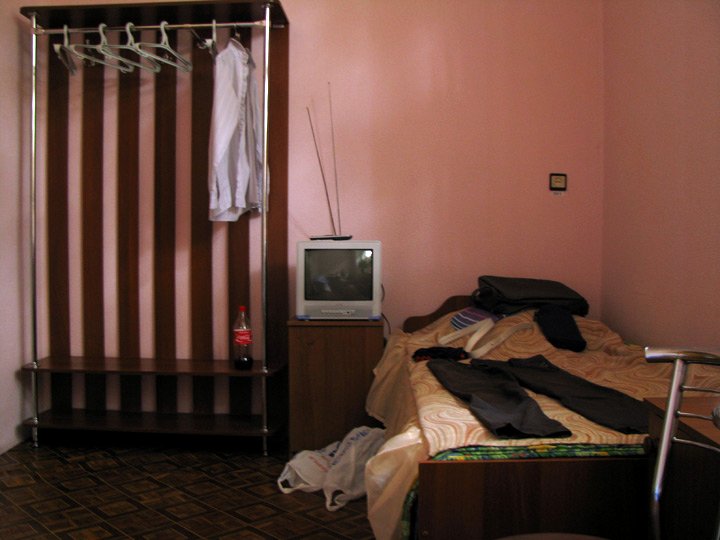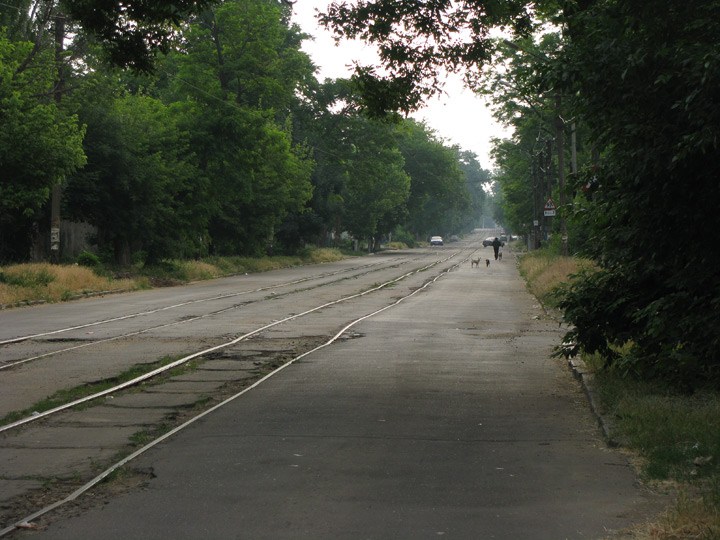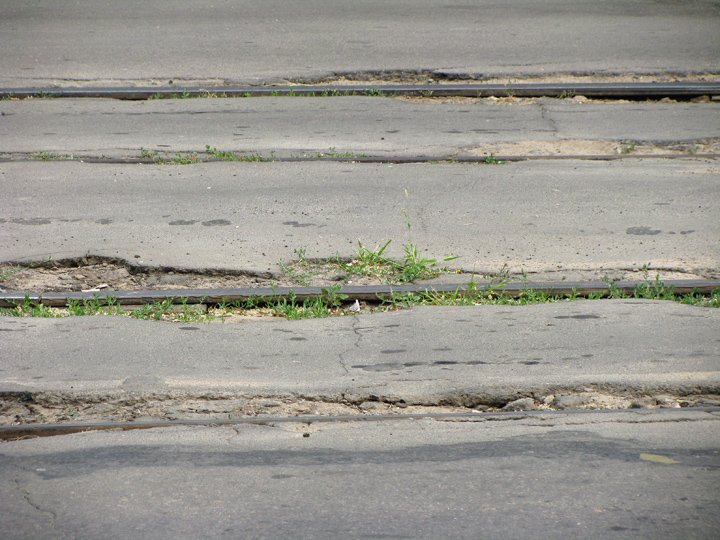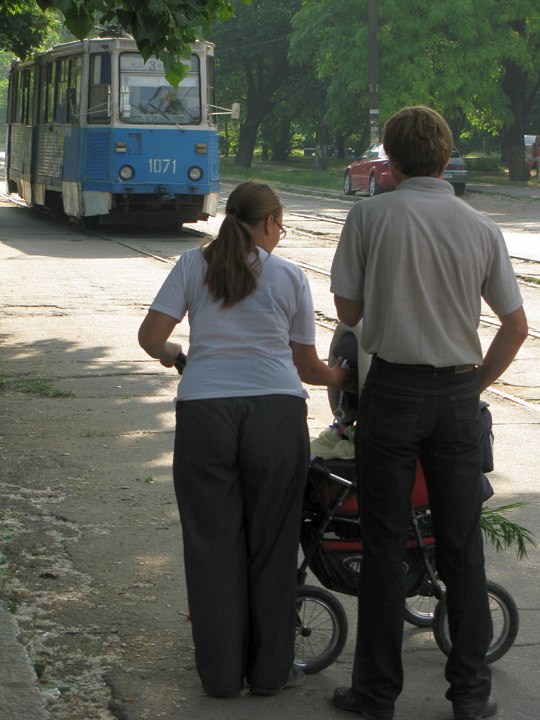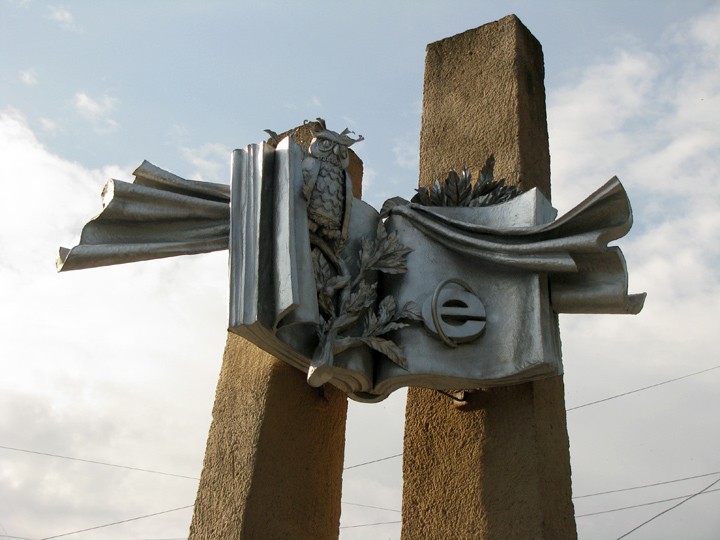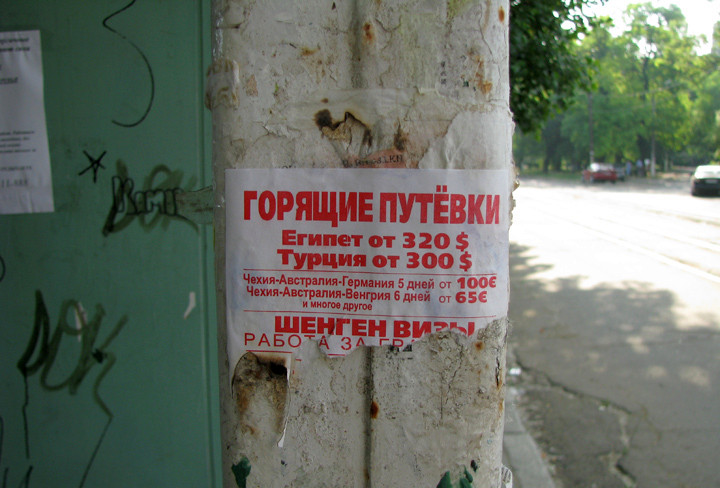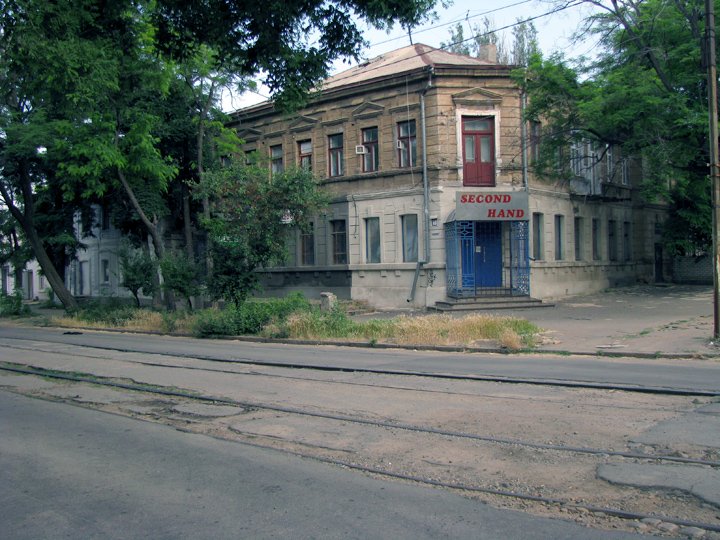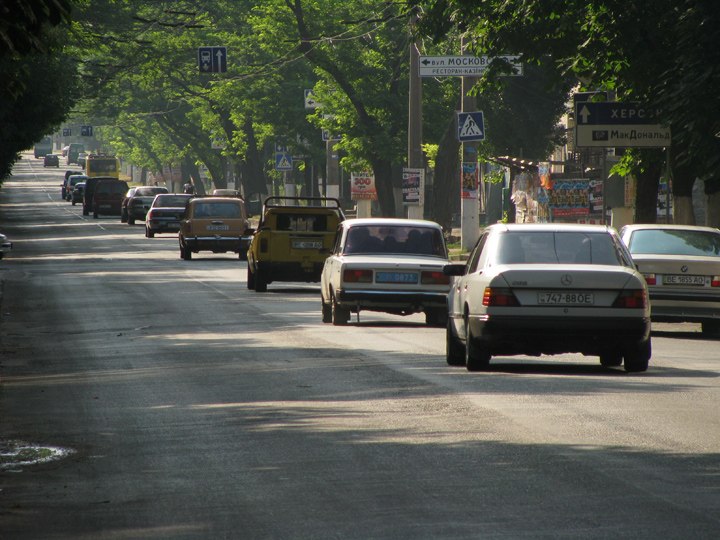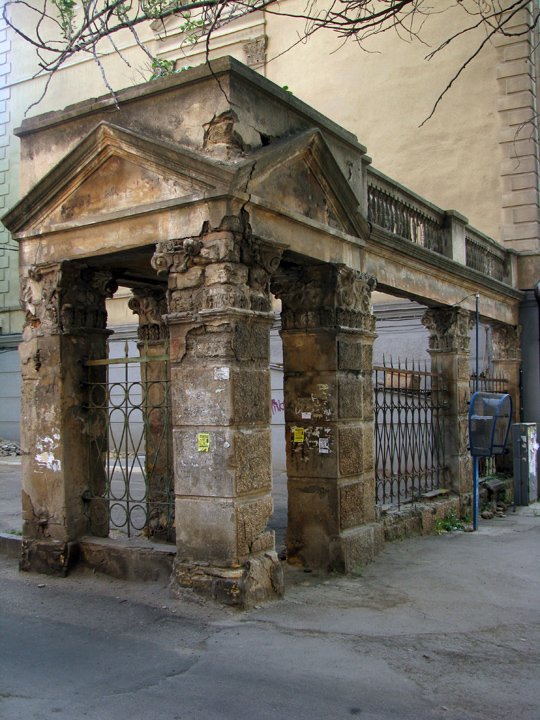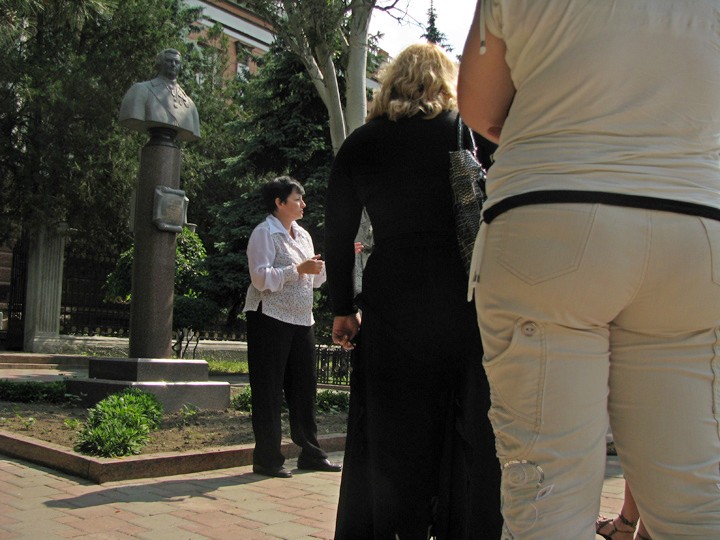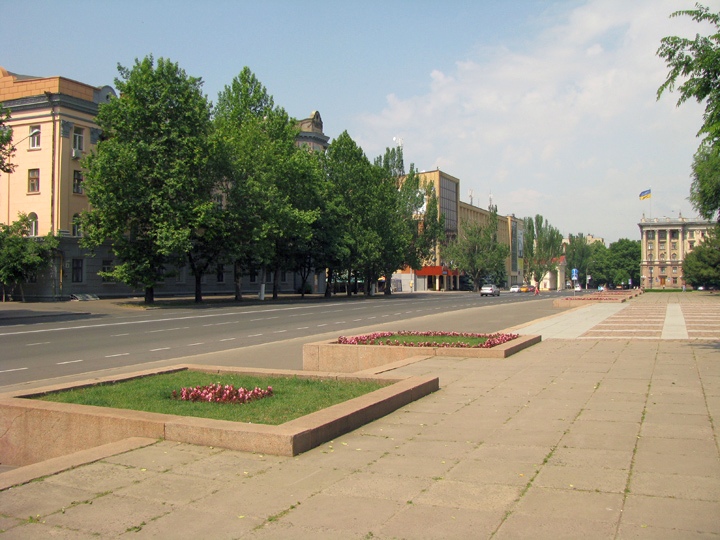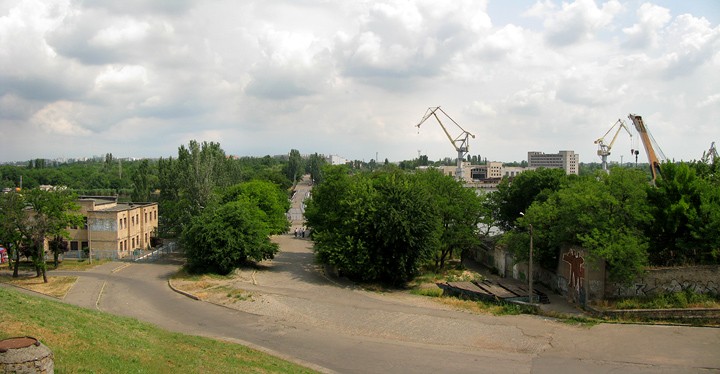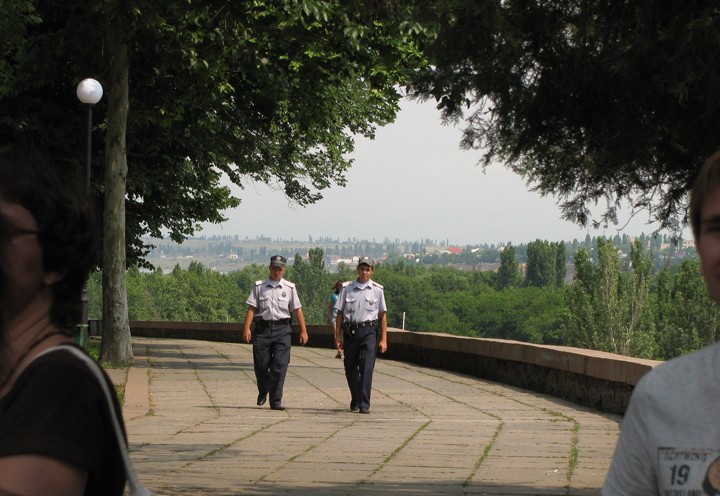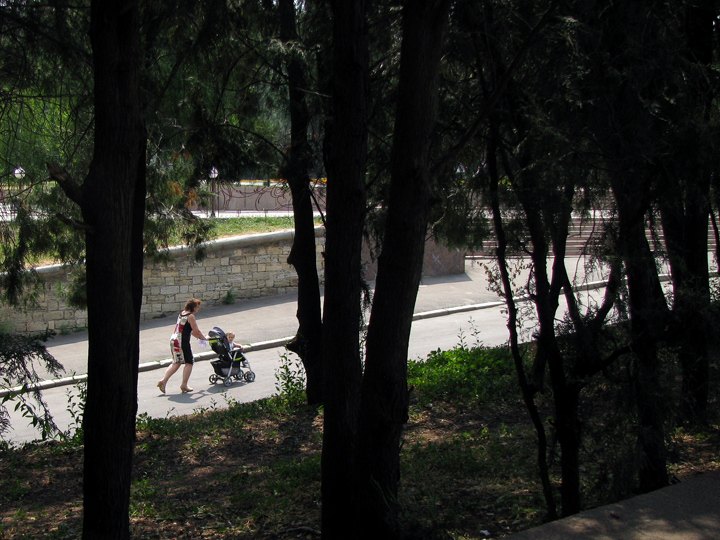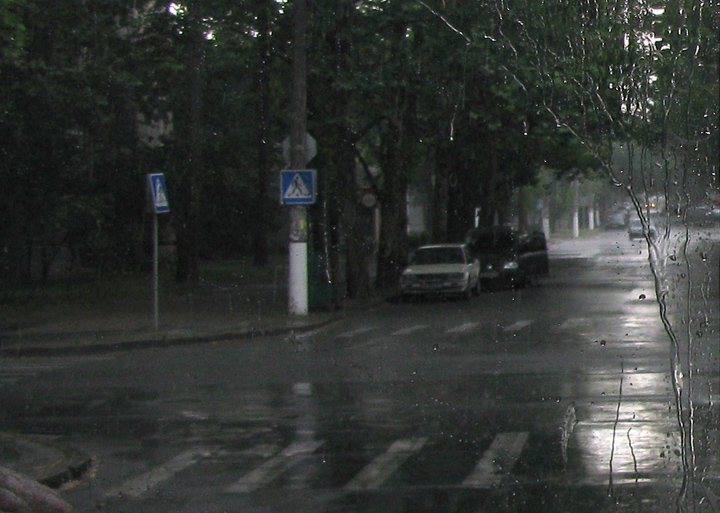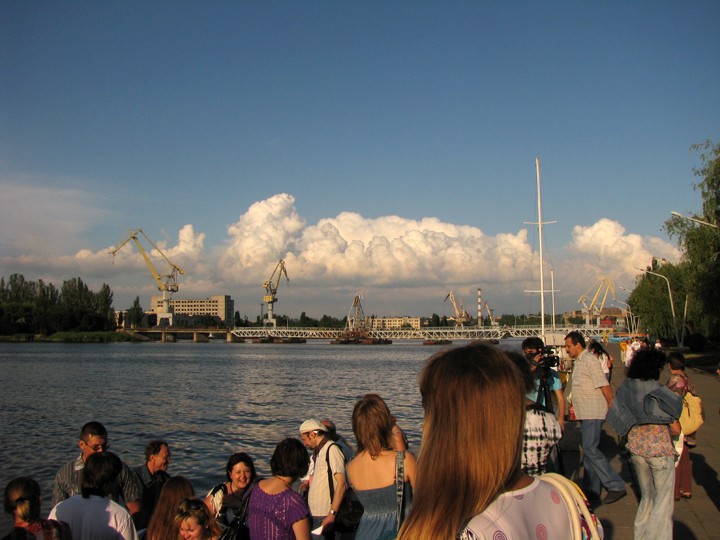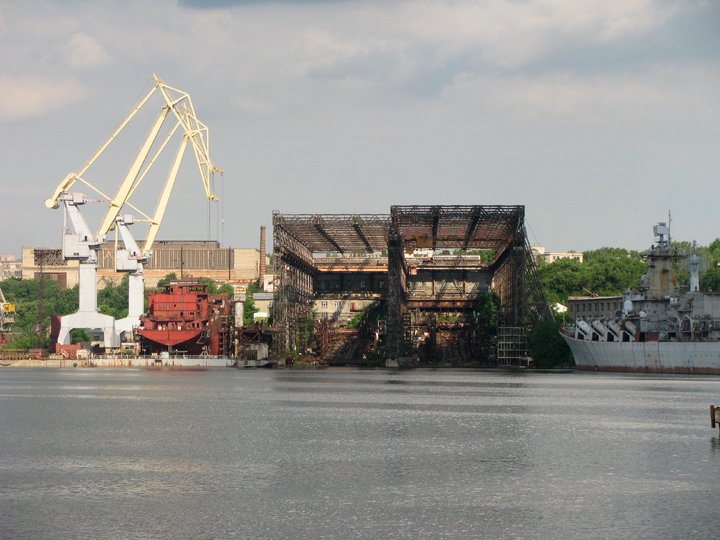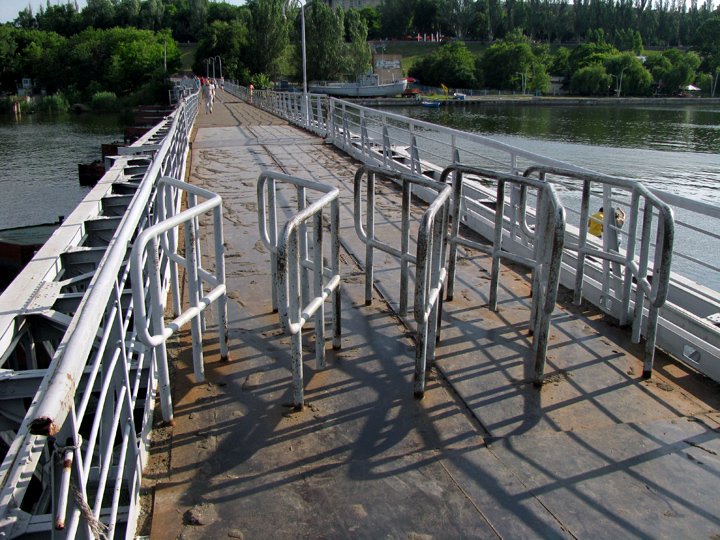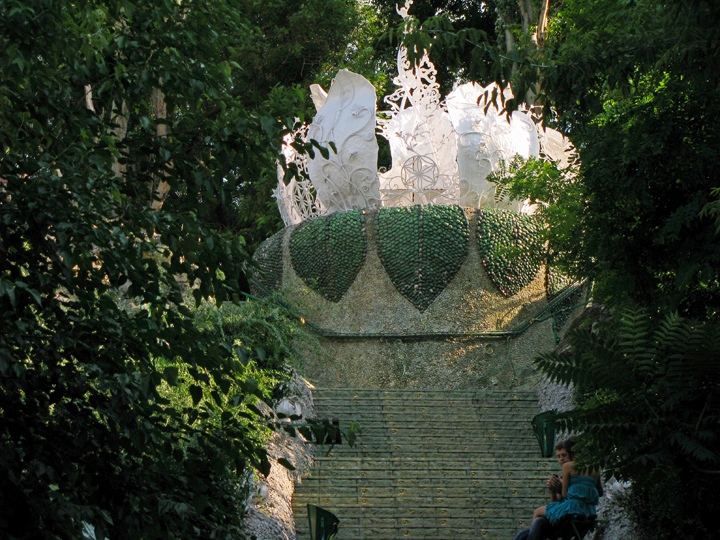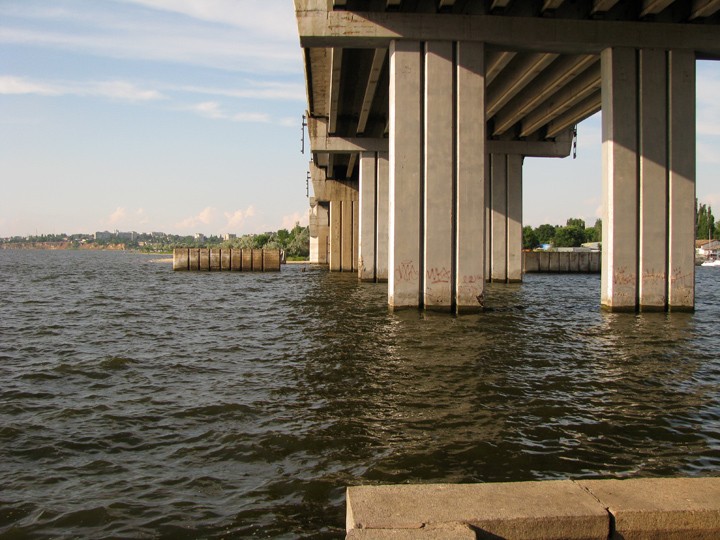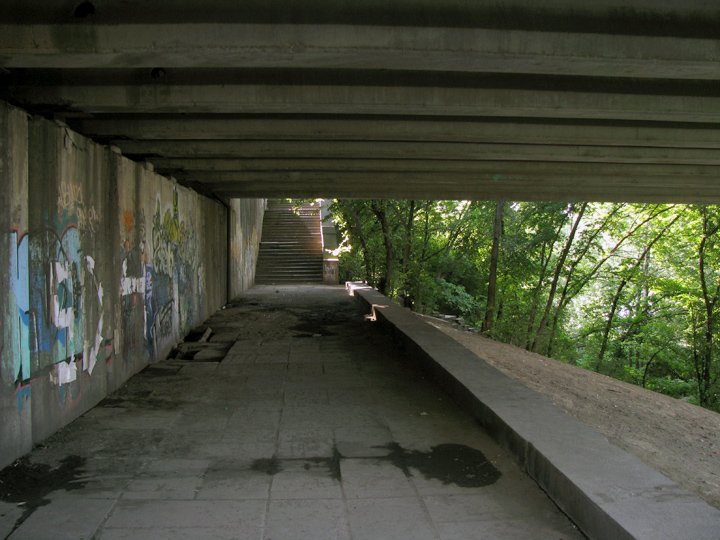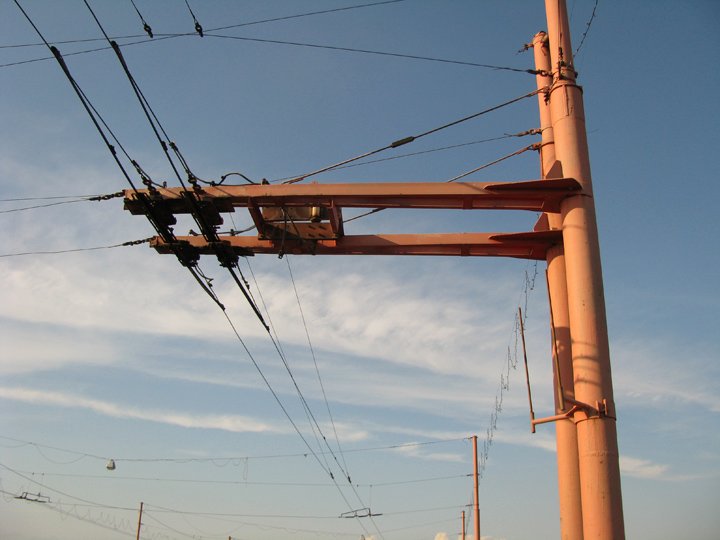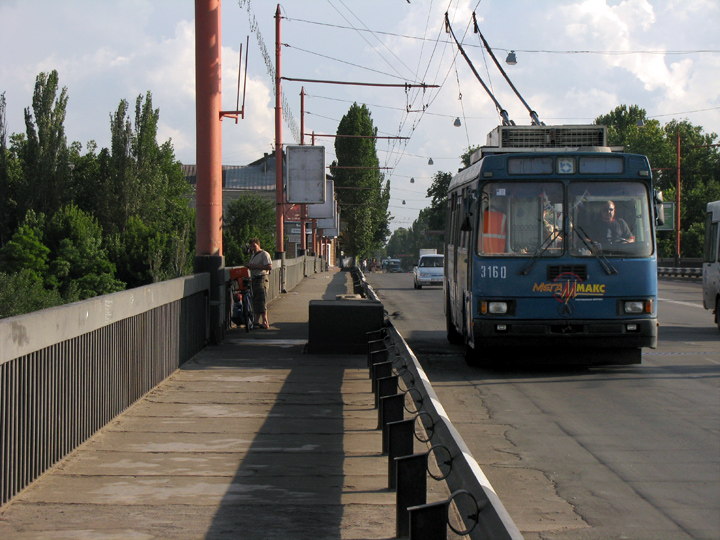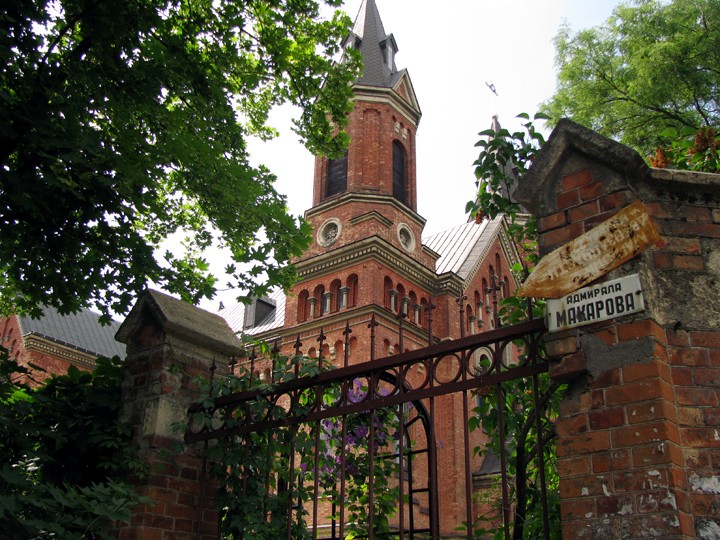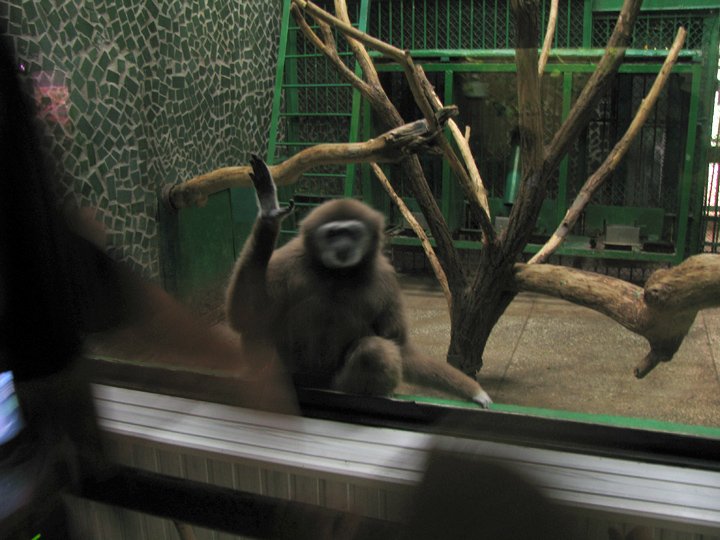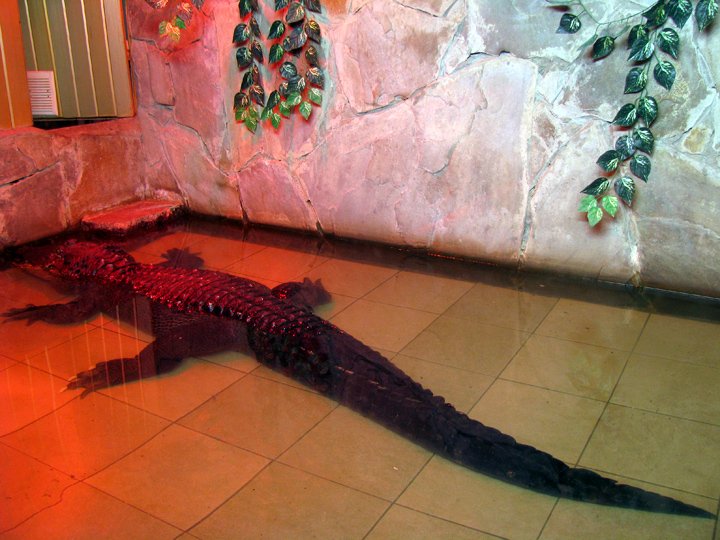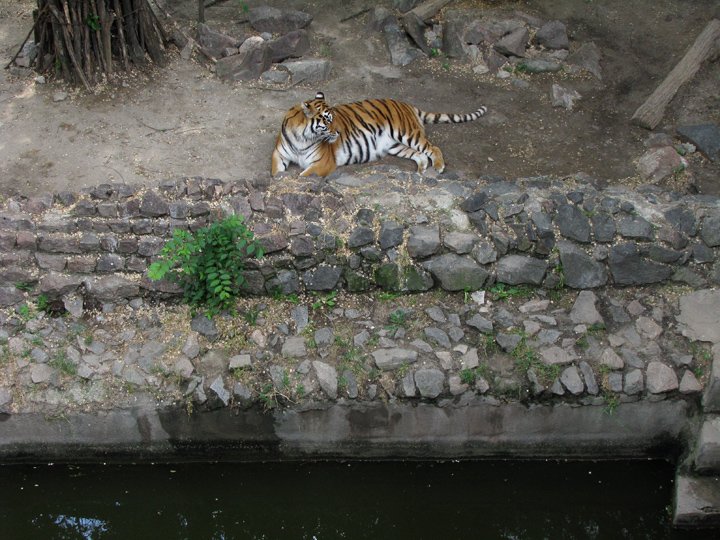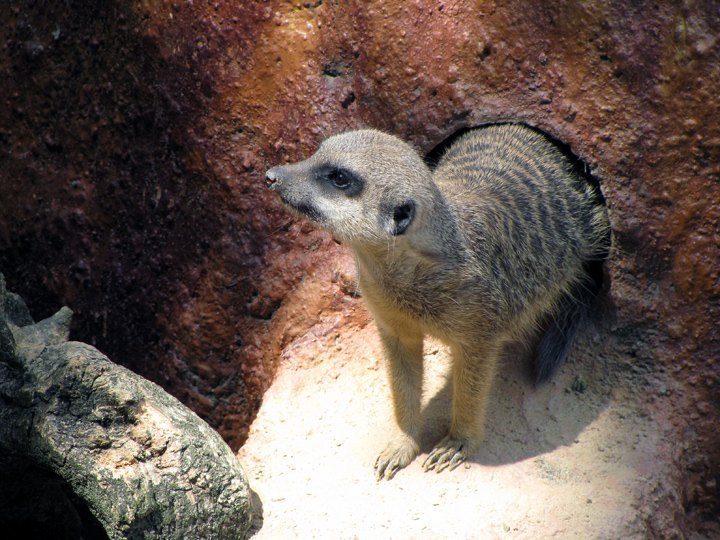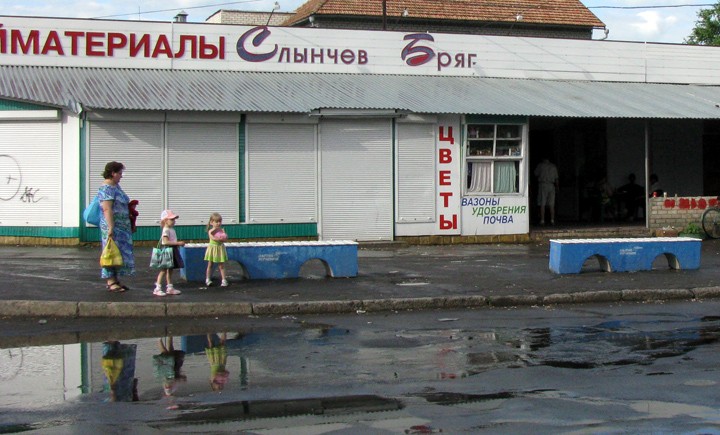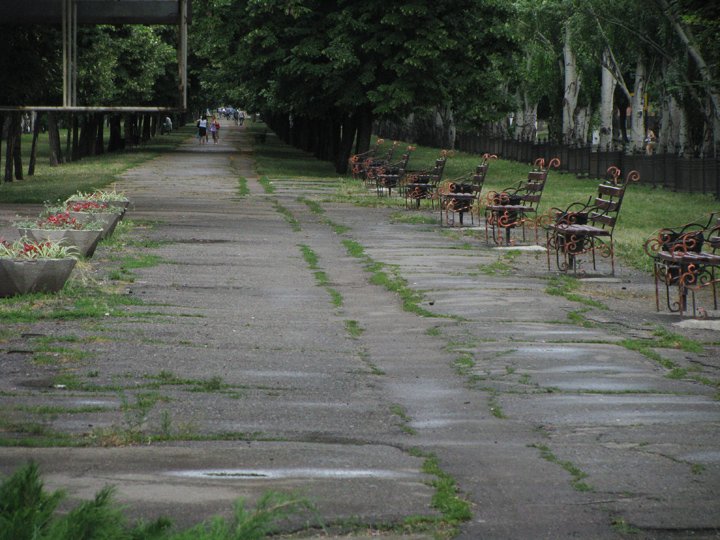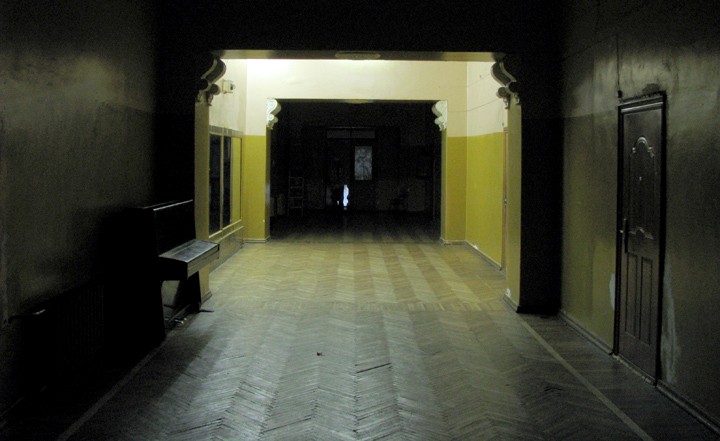I was accompanying a poet who was participating in a poetic festival called «Waterliniya-2011», organized by the city. This was my first visit to Mykolaiv — following mostly the routes planned by someone else.
The festival was well organized. The poets were met from the train, and quickly transported to a dormitory of the regional center of tourism and excursions for the studying youth. That long name is not even a complete translation, by the way. We did not even have the time to look around the train station. The poets were to stay there for one night for free. Not being one of them, I had to pay some small fee.
The rooms inside were looking like this:
It was not a posh hotel, but it was more than enough to sleep at. The receprionist was like «— Hand washers for men are in the end of the corridor. The ones for women are behind them. We have our own water heaters. Hot water is available always, from 17:00 to 23:00. Showers for men are here, and here are showers for women». Men and women were put in separate rooms, even the married couples. There were no married couples among those poets.
The organizers plans were such that the poets had to sleep for four hours after the early train. I chose to go outside and see the city. I emerged at Potyomkinska street, which had potholes and a tram track.
The trams were having sliding doors similar to the ones in Horlivka or Avdiivka.
The poets had their readings inside this library, which had the logo of Internet Explorer cast in some hard material as part of a sculpture near the entrance. I think they wanted something to symbolize the internet, and had some hard time looking for the metaphor. They did not know about its downfall was already in the process.
An announcement of a tour operator advertising a route like this: Czech — Australia — Germany (or Hungary) for EUR 100 or even 65. I bet they meant Austria.
The old town was around me. Many houses were more than 100 years old.
The parallel street was Velyka Morska, and it had a trolleybus lane.
Excessive architectural details near a usual living house.
I had to go back and join the excursion as was planned by the festival organizers. They took the poets and me into a bus and drove us through a few (really a few) main spots of seamen glory.
«Potyomkin made love to his many nieces, yes, but such are the physiological needs of a great founder of many cities», to quote the guide. Despite such phrases and happy smiles, I felt that Potyomkin was more frowned upon, than adored.
They brought us to the main square.
A pontone bridge was visible from the square. I've added it to my visit checklist.
A police patrol strolling on a picturesque route.
Less picturesque, while more demanding was the route of this woman with a stroller.
The horde of poets was persuaded into the bus by a downpour, as was not planned by the festival organizers. It became darker for some time.
The excursion ended, and the poets read their stuff on the festival. I did not take photos because it was not my piece of pie. After finishing the readings, the poets had a strange performance called «purification of Inhul's waters by paper boats of poetry» — they went to the most dirty place of the quay, where the water was not even visible under the floating garbage, and added their paper boats to that garbage.
I continued on my own. Got to the pontone bridge first and foremost. The shipyard as was visible from the bridge:
It was a pedestrian bridge. Cyclists were allowed, but had to dismount to pass this limiter:
The students were calling this park sculpture a «crazy cabbage».
Went under the Inhul bridge. It did not stink here,
but it did stink here on the pedestrian pass under the bridge.
The bridge itself had a mechanism to split the trolleybus wires.
It was a moveable bridge, opened for big ships when needed. That feature required the trolleybus wiring to be accounted for.
The trolleybuses were old, but not too old.
A former catholic temple was home to the regional museum. The building was lovely and red.
Had to visit the zoo. A monkey:
A croc had 59 years of age. They called him Vasya, and that was one of the most unfitting names ever given to a crocodile.
There were meerkats, near whom everyone suddenly switched their smalltalks to the topic of the Meerkat Manor TV show. Actually, the cage itself was named Meerkat Manor.
I went to an end stop of a trolleybus route just to see some outskirts. There were benches painted in Yanukovych's political party colors, complete with its logo, and some kiosk named after a resort town in Bulgaria. It wasn't much that I saw here, in other words.
Who could it be that this long avenue was named after? Lenin, of course. This long street had renovated sections as well as some slightly forgotten ones, like shown here.
The poets went to a slam inside the Zhovtnevy house of culture. I went, too because it was already dark and almost time to get on the train back home. It was dark and gloomy in this mostly forgotten place.
